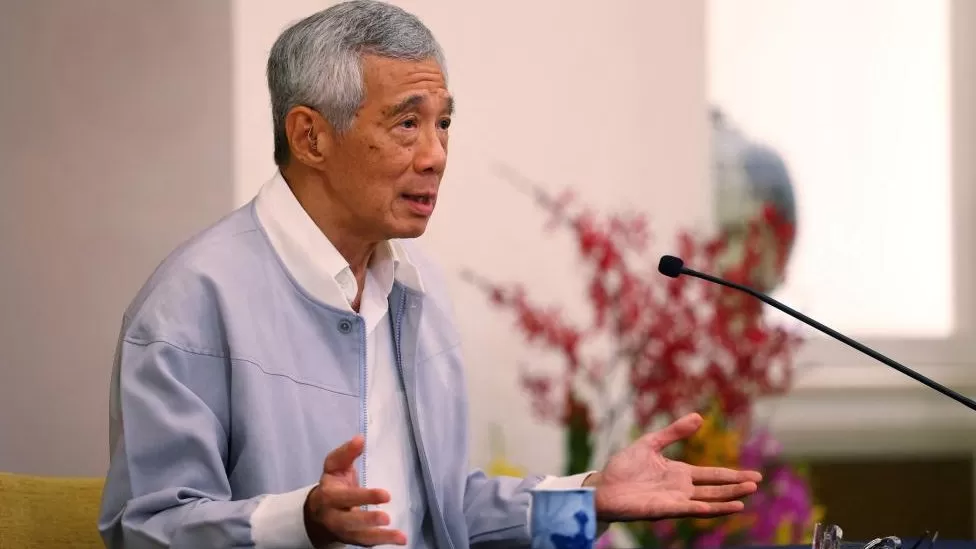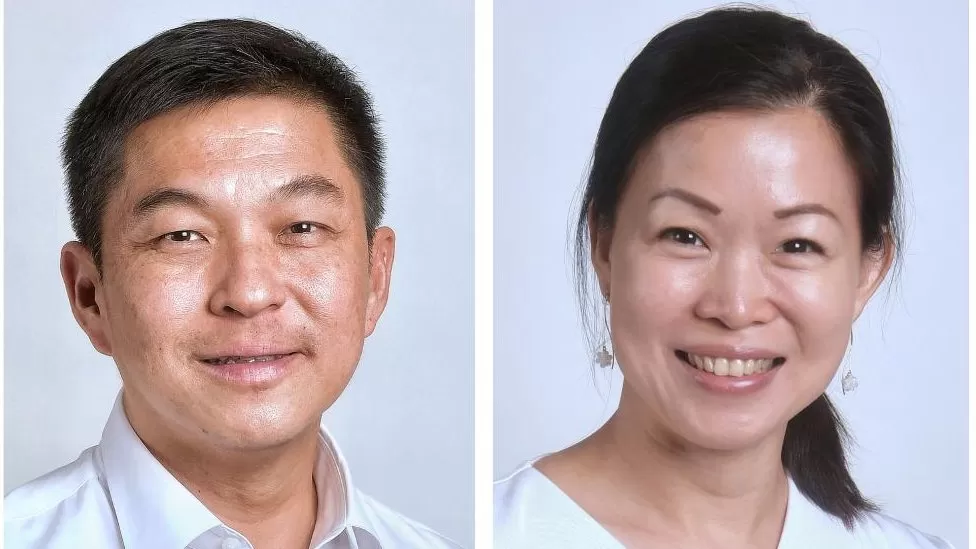Singapore: City-state rocked by rare political scandals

A string of rare political scandals has rocked Singapore, a country known for its political stability.
The first senior minister to be implicated in a corruption probe in four decades was arrested last week.
On Monday, two lawmakers – one of whom was once tipped as a potential prime minister – resigned after an extramarital affair was revealed.
The shocking news has shocked residents of the city-state, which prides itself on its clean governance and highest paid leaders.
According to analysts, the scandals could undermine support for the ruling People’s Action Party (PAP), which holds a large majority in parliament and has been in power since 1959.
This, they say, casts doubt on Lee Hsien Loong’s ability to step down.

The Speaker of Parliament, Tan Chuan-jin, 54, and his fellow lawmaker, Cheng Li Hui, 47, resigned on Monday over their “inappropriate relationship”. The Tans are married, while the Chengs are single.
The arrest of Singaporean Transport Minister S Iswaran and billionaire hotelier Ong Beng Seng last week raised more questions about transparency. In 2008, these two men played an important role in bringing the Grand Prix to Singapore.
A probe led to Mr Iswaran’s removal from his ministerial duties last Wednesday.
Lawrence Wong, deputy prime minister, has promised that the corruption probe will be “full, thorough, and independent”.
Despite that, authorities announced the arrests only three days after they had actually taken place. In both cases, no charges have been filed against the men, and they are both out on bail at the moment.
It followed allegations that two other senior ministers had rented colonial-era bungalows in a high-end neighbourhood below market rates.
Vivian Balakrishnan and K Shanmugam were cleared of any wrongdoing, but the matter sparked a heated debate on inequality in Singapore.
A series of unusual events has spawned inevitable memes. YEOLO.SG’s creators wrote on Monday: “This season’s writers have really outdone themselves.”.
A separate post, featuring actresses on the set of the Barbie movie crowding around a laptop, read: “When me and the girlies get interested in politics in Singapore.”
One Instagram user wryly compared the current political situation to spilling tea.
There are serious questions about the PAP’s future and its ability to hold on to Singaporeans’ trust beyond the jokes.
The government has experienced similar scandals in the past – a previous parliamentary speaker and a backbencher stepped down due to extramarital affairs. In spite of that, voters’ scrutiny has been heightened by the close timing of the scandals and corruption investigation.
It is the PAP’s reputation for demanding high moral standards of its lawmakers, and for keeping its house in order. As one of its founding members once said, joining the PAP is like joining the priesthood.
This week, Lee defended his party’s handling of the recent scandals, saying it demonstrated “the way the system needs to work”.
There are times when things cluster up, but we make sure we fix them,” he said, emphasizing that “high standards of propriety and personal conduct are the fundamental reasons Singaporeans respect and trust the PAP”.
Many observers contend that these controversies call Singapore’s claims to exceptional governance into question, particularly those made by the PAP.
“The biggest concerns are authority restraints, oversight, transparency, impartiality of parliamentary process, and the PAP’s claim that it is a sufficient check on itself,” said Singapore-based political scientist Ian Chong.
According to him, the PAP rejects political practices common in other developed jurisdictions, such as the public disclosure of income and assets by politicians, senior civil servants, and their families.
According to Michael Barr, a Singapore-based international relations professor who has written several books on Singapore politics, there are no robust mechanisms for holding power players accountable.
“You just have to trust them. That’s why this is a dangerous and novel development for the government. They’re trashing the trust the public has in them,” he explained.
In Transparency International’s latest Corruption Perceptions Index, Singapore ranks fifth least corrupt. As a way to repress corruption, the government has justified ministerial pay checks of seven figures.
The government must win elections without extraordinary levels of public trust, as Dr Barr argued: “either through repression and other measures that subvert democracy, or through performance-based legitimacy.” In recent years, they have demonstrated such a lack of performance legitimacy that we can forget about it.”
As a result of the recent events, it is also unclear when Mr Lee will step down.
The prime minister, who has been in office since 2004, has often expressed his wish to retire. There has already been a successor named: Lawrence Wong, also the finance minister.
According to Mr Lee, he does not intend to call a general election immediately. By November 2025, there will be another round of polls.
According to Dr Chong, Mr Wong’s absence from the recent scandals raises questions about his readiness to serve as the city-state’s leader.
